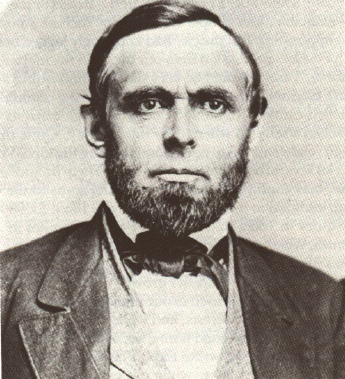The citizens agreed with Tappan, and in 1869, brought
to the Ann Arbor City Council a petition with 1,100 signatures demanding
the enforcement of the liquor law that prohibits saloons from doing business
on Sundays.
| The demand for order was so great that in 1871 the citizens
elected Silas Douglas as mayor. |
 |
Douglas was the first University faculty member to become mayor. His stance was that "good moral influences should prevail in our University city."
Douglas went to every business that sold alcohol and warned the owners to follow the anti-liquor law or face prosecution. This proved to be successful because of the respect Douglas commanded. Soon, an ordinance creating a permanent police force followed Douglas' efforts, which was funded by license fees saloons had to pay.
|